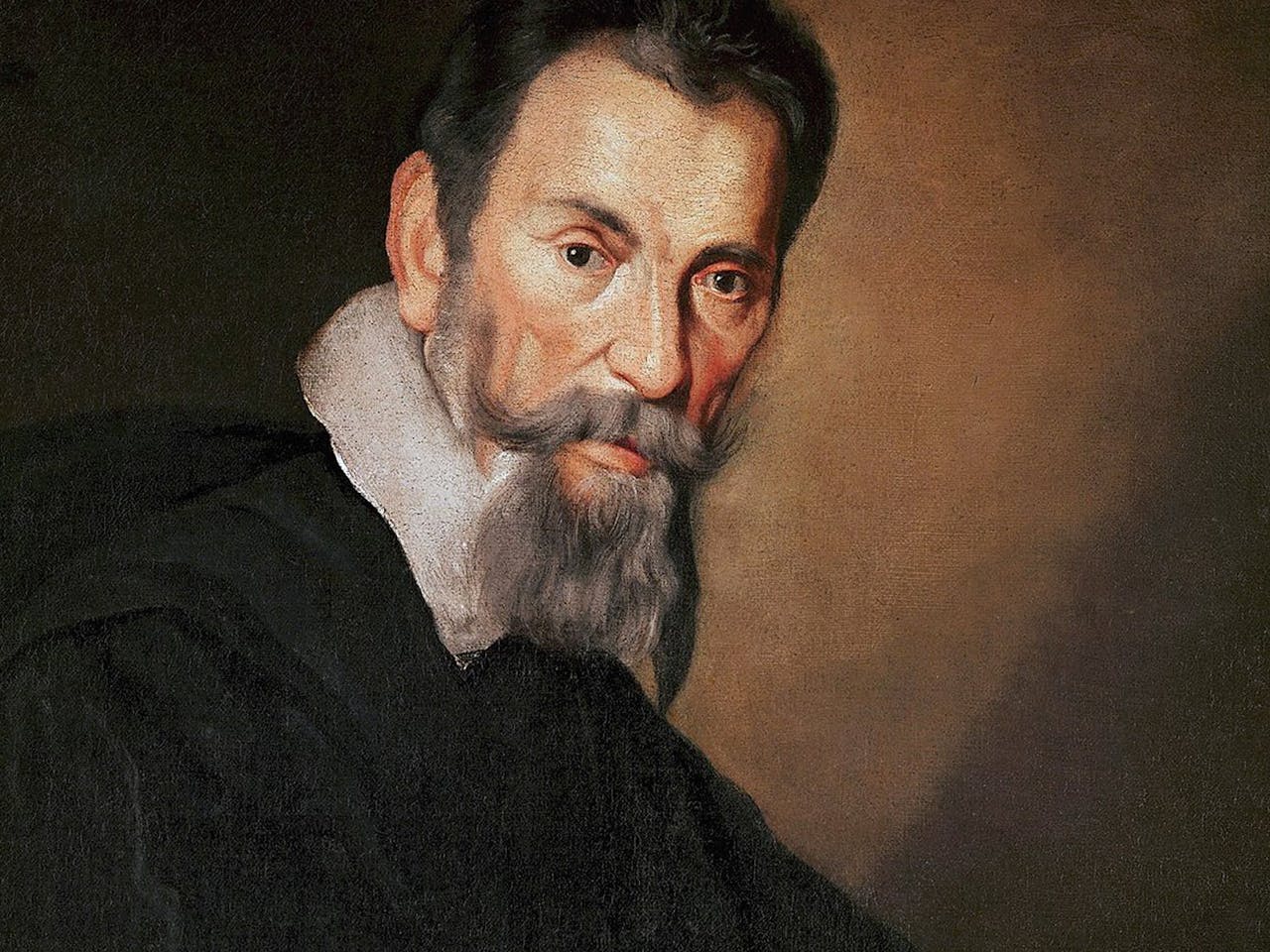Claudio Monteverdi
Biography
Italian composer Claudio Monteverdi (1567–1643) was one of the most important composers of the turn of the 17th century. He was the first opera composer whose works, which include Orfeo and L’incoronazione di Poppea, are regularly performed today. His music marks the end of the Renaissance style and the beginning of the Baroque.
Born in the north Italian city of Cremona, the young Monteverdi was publishing vocal works by the age of 15. He moved to nearby Mantua, where he established himself as an important voice in the compositional style that became known as the seconda pratica, exemplified by his Fifth Book of Madrigals (1605). This musical style differed greatly from the stricter, contrapuntal style of earlier Renaissance composition, making greater use of unprepared dissonance and responding sensitively and dramatically to the text. Orfeo, commissioned by Prince Francesco Gonzaga for the Carnival of 1606–07, was his first opera. His second opera, Arianna, is now lost, save for the title character’s ‘Lamento’, which was so popular it was published separately several times. Later works include the Vespers, published in 1610 in Venice; he moved to that city in 1613, becoming maestro di cappella at St Mark’s Basilica.
Monteverdi was in his seventies by the time he wrote his two final operas, Il ritorno d’Ulisse in patria and L’incoronazione di Poppea. They are as innovative as his earlier works, demonstrating his extraordinary adaptability and unique dramatic powers.
Be the first to know
Sign up to hear the latest Royal Ballet and Opera news, receive ticket alerts, and discover how to support us.
Sign up to hear the latest Royal Ballet and Opera news, receive ticket alerts, and discover how to support us.
